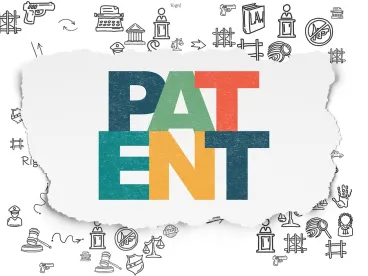The Patent Trial and Appeal Board (Board) designated two decisions informative as they relate to weighing factors for determining how a parallel district court proceeding may impact the Board’s determination of whether to discretionarily deny institution under § 314(a).
In Apple Inc. v. Fintiv, Inc., Case No. IPR2020-00019, Paper 15 (USPTO May 13, 2020) (Horner, APJ) (designated informative on July 13, 2020), the Board had previously requested supplemental briefing in a pre-institution order in this case (itself now designated by the Board as precedential) regarding six factors for weighing the impact of the parallel district court proceeding on whether to discretionarily deny institution.
As to factor (1), whether the district court action is stayed or evidence exists that a stay may be issued, the Board weighed this factor as neutral because neither party had requested a stay and the district court had given no indication as to whether it would entertain a stay. Absent definitive statements by the district court as to the specific case, the Board declined to infer how a judge might rule if a motion were to be filed.
Under factor (2), the proximity of the court’s trial date to the Board’s projected statutory deadline for a final written decision, the Board found this factor weighed slightly in favor of a discretionary denial. Even though the district court’s initial trial date had been pushed back, the new date was still two months earlier than the Board’s one-year deadline for issuing a final written decision. In addition, the new date appeared to be relatively certain, and mere speculation about the further delays being typical was not enough to weigh this factor in favor of a discretionary denial.
As to factor (3), the court’s and parties’ investment in the parallel proceeding, the Board found this weighed somewhat in favor of discretionary denial. Even though expert reports had not been served, the district court had already issued a detailed Markmanorder construing seven claim terms, and the parties had already served their final invalidity contentions.
Under factor (4), the extent of overlap of the issues raised in the petition compared to those raised in the parallel proceeding, the Board found this factor favored discretionary denial because the Petitioner was pursuing the same prior art on the same claims in district court.
Under factor (5), the parties in the district court action were the same as the IPR, so this factor weighed in favor of discretionary denial.
As to the catch-all factor (6), including considering the merits of the challenge, the Board found that there were key weaknesses in the petition that helped tip the scales toward discretionary denial. In sum, the Board found that the weight of the factors tipped toward exercising its discretion to deny institution.
In Sand Revolution II, LLC v. Continental Intermodal Group–Trucking LLC, Case No. IPR2019-01393, Paper 24 (USPTO June 16, 2020) (Flax, APJ) (designated informative on July 13, 2020), the Board came to slightly different conclusions for some of the factors, ultimately granting the Petitioner’s request for rehearing and instituting review of the petition.
Under factor (2), the Board found that the parallel district court’s trial date lacked certainty because the parties had jointly twice moved for–and the district court agreed to–extending the dates in the scheduling order. In addition, even though the current trial date was set for a few months before the Board’s deadline for a final written decision, the trial date lacked certainty because it included the qualifier “or as available.” Accordingly, the Board weighed this factor slightly against a discretionary denial.
As to factor (3), the Board found the investment in the case by the district court and the parties to weigh only “marginally, if at all” in favor of a discretionary stay. Although the district court had issued a Markman order, it was only two pages and had determined that all of the claim terms should be given their plain and ordinary meaning.
As to factor (4), the Board found minimal overlap with the district court, because the Petitioner had stipulated that it would not raise the same grounds of invalidity in the district court if the IPR were instituted. As a result, it found this factor to weigh marginally in favor of not exercising discretion to deny institution.
As to the merits of the challenge, the Board found no substantial weaknesses in the arguments and evidence of petitioner. As a result, it found that factor (6) would weigh in favor of not exercising discretion to deny institution. In sum, the Board found that the weight of the factors tipped toward not exercising its discretion to deny institution.



 />i
/>i

